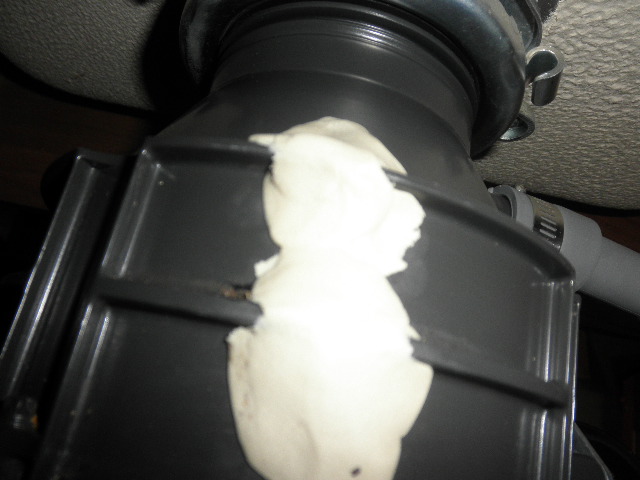Leading Methods for Resolving a Leak in Your Garbage Disposal
Leading Methods for Resolving a Leak in Your Garbage Disposal
Blog Article
What are your thoughts on The Handy Guide To Fixing Your Garbage Disposal Leaking?

Garbage disposals are necessary kitchen area devices that aid in disposing of food waste effectively. However, a leaking waste disposal unit can be an irritating and unpleasant trouble to deal with. Luckily, lots of leakages can be dealt with quickly with a few easy actions. In this short article, we will certainly go over just how to fix a leaking waste disposal unit properly.
Intro
Waste disposal unit are installed under kitchen area sinks and are made to shred food waste into smaller sized pieces, enabling it to travel through the plumbing system conveniently. While these devices are typically trusted, leakages can happen over time due to deterioration, loose links, or damage to the unit.
Step-by-Step Overview to Repairing a Leaking Waste Disposal Unit
Shut off the Power
Before trying any kind of repair services, guarantee that the power to the garbage disposal system is shut off to avoid the threat of electrical shock.
Situate the Leakage
Recognize the precise location of the leak and figure out the cause
Tighten Links
Use a wrench to tighten up any kind of loose links between the disposal device and the plumbing system.
Change Seals or Gaskets
If the leakage is because of used seals or gaskets, remove the old elements and change them with new ones.
Patching Fractures or Openings
For splits or openings in the disposal device, use epoxy or an ideal patching product to secure the broken area.
Identifying the Source of the Leakage
Prior to trying to take care of a dripping garbage disposal, it is vital to identify the source of the leakage. This can generally be done with aesthetic inspection or by carrying out straightforward tests.
Visual Evaluation
Inspect the garbage disposal device meticulously for any type of indicators of water leakage. Pay close attention to areas around seals, gaskets, and connection points.
Evaluating for Leaks
One means to examine for leakages is by running water with the disposal device and checking for any visible signs of leakage.
Common Reasons For Leaks in Rubbish Disposals
Worn Seals and Gaskets
Seals and gaskets play a crucial role in avoiding water from leaking out of the waste disposal unit. With time, these parts can wear away, leading to leaks around the disposal system.
Loose Connections
The connections between the garbage disposal and the plumbing system can become loose over time, creating water to leakage out during operation.
Fractures or Holes in the Disposal System
Physical damages to the waste disposal unit, such as fractures or holes in the housing, can additionally lead to leakages.
Devices and Materials Needed for Taking Care Of a Leaking Waste Disposal Unit
Prior to beginning the repair service process, gather the needed tools and materials, including a screwdriver, adjustable wrench, plumbing's putty, replacement seals or gaskets, and epoxy or patching material for repairing cracks or openings.
Evaluating the Waste Disposal Unit After Repair Service
Once the repair service is complete, examine the garbage disposal by running water via it to ensure that the leak has been dealt with.
Preventive Upkeep Tips to Stay Clear Of Future Leakages
To avoid future leakages, it is essential to perform normal upkeep on your waste disposal unit. This consists of keeping it clean, avoiding putting non-food things or difficult objects down the disposal, and regularly checking for leakages or various other issues.
Conclusion
Finally, dealing with a leaking garbage disposal is a reasonably straightforward process that can be finished with basic devices and materials. By adhering to the actions outlined in this write-up and practicing preventive maintenance, you can maintain your waste disposal unit in good working problem and stay clear of pricey fixings in the future.
HERE’S HOW TO FIX YOUR GARBAGE DISPOSAL
WHAT TO DO IF SOMETHING IS STUCK IN YOUR GARBAGE DISPOSAL
If the impeller won’t turn, there’s probably something stuck in the disposal. It could be a steak bone or peach pit, although plumbers report pulling all sorts of inappropriate objects out of disposals, such as bottle caps or aluminum foil. Make sure power to the disposal is off, and look inside to see if you can see the source of the jam.
Never stick your fingers in a disposal. Pull out anything you see with tongs or pliers.
If the disposal still won’t work, it may be time to call a plumber or consider buying a new disposal. GEM Plumbing & Heating is here for all of your garbage disposal needs.
WHAT TO DO IF YOUR GARBAGE DISPOSAL DRAIN IS CLOGGED
Take everything out from underneath your sink and put a bucket or other container under your disposal to catch any water that drains out. Disconnect your disposal from the power supply. If it’s plugged into a wall outlet, unplug it. If it’s hardwired into an electrical box, go to the electrical panel and turn off the breaker for the disposal. Pour ¼ cup of baking soda into the drain, followed by ½ cup of white vinegar. Give the solution a few minutes to fizz and do its work. Look into the disposal with a flashlight to see if you can see an object that might be causing the clog. If you see it, remove it using tongs or pliers. MORE TIPS ON DEALING WITH A CLOGGED GARBAGE DISPOSAL
Never use drain cleaner in a garbage disposal. It can damage the plastic parts inside the disposal. You can also be splashed with the caustic liquid while working to clear the clog. Beware! Never stick your fingers into a garbage disposal. Trust us — not a good idea. In many instances, your dishwasher drains through your garbage disposal. This allows the disposal to grind any large food particles that may be drained out of your dishwasher. There are some jurisdictions, however, where the plumbing code prohibits such a connection. WHAT TO DO WHEN YOUR DISHWASHER DRAINS THROUGH THE DISPOSAL
Run some water in the sink so your plunger has at least a ½-inch of water to create a seal and plunge vigorously up and down several times. You may need to repeat this several times. Run hot water down the drain to clear any residue that remains.

As a passionate reader about Why Is , I was thinking sharing that piece of content was worth the trouble. Do you know about another individual who is in to the subject? Why not promote it. Thanks so much for your time invested reading it.
Schedule Your Service Report this page